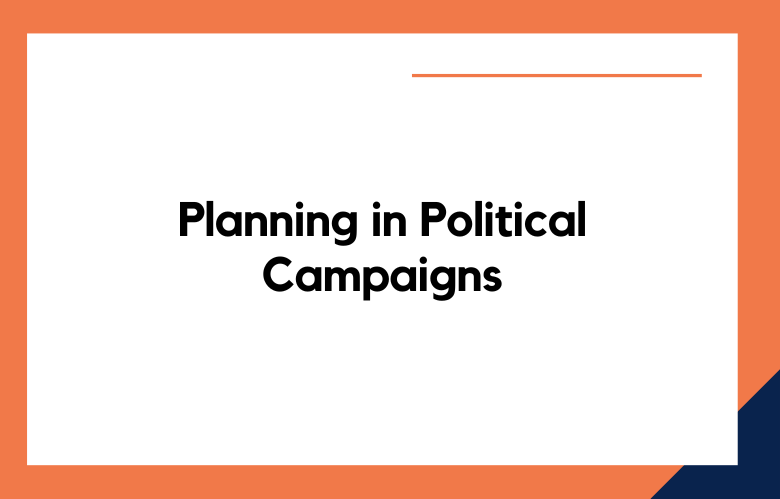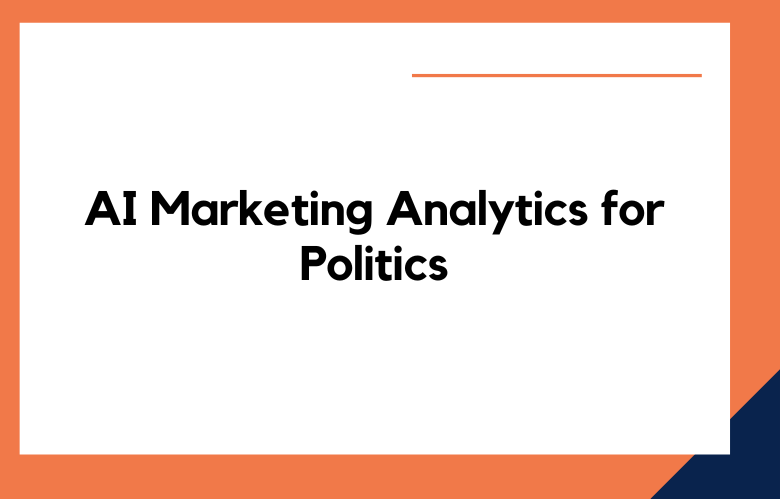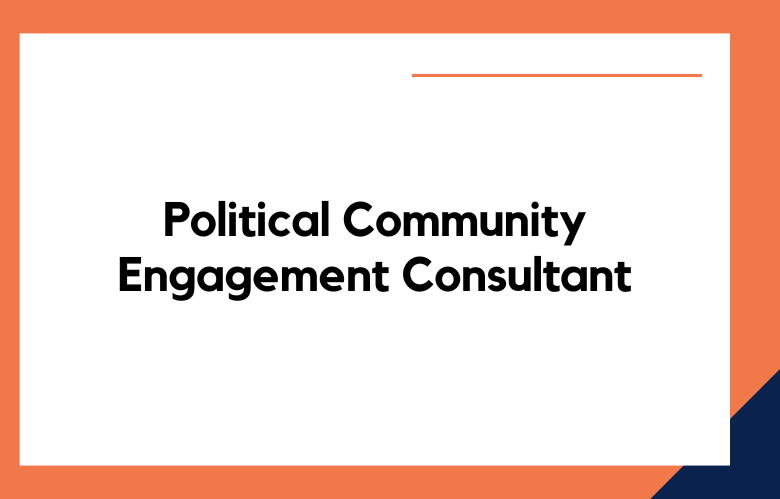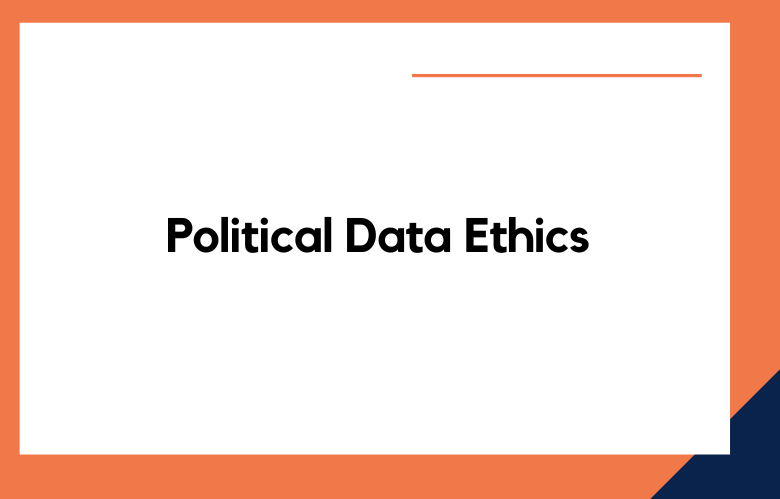Technology has abruptly invaded almost every aspect of human life. With its emergence, methodologies and approaches used in different fields, including politics, are revolutionizing with each passing day. Artificial Intelligence (AI) has recently gained prominence, and political campaigns have been included.
Although AI still seems innovative, it is an effective tool for improving campaigns’ success rates. Using AI in political campaigns provides a better understanding of voter preferences, campaign strategy, and the reduction of human errors.
What is AI and How Does it Work?
Artificial Intelligence uses technology to mimic human cognitive functions like learning, decision-making, recognizing patterns, and interpreting data.
AI is powered by machine learning algorithms trained on considerable datasets to detect patterns and make predictions. AI can analyze voter data and predict voting trends, sentiments, and preferences in political campaigns.
These insights are then used to create more targeted and personalized messages for different voter groups, which can significantly increase the chances of voter conversion.
AI for Research and Planning
With extensive data generated by social media, digital marketing, and other sources, it cannot be easy to analyze all the data and gain insights for effective campaign planning.
This is where AI comes in. AI-powered tools can analyze vast amounts of data and identify patterns and trends. Campaign managers can use this data to create voter models and personalize messages based on demographics, interests, and voting behavior.
AI can also help campaigns in conducting an issue analysis. Political candidates can leverage AI to understand better the issues concerning people within specific constituencies.
This helps the campaigns better focus on what matters most to voters, predicting key issues in voter decision-making.
How AI is Revolutionizing Political Campaign Research and Planning
There’s no denying that Artificial Intelligence (AI) has begun to take over almost every aspect of our lives.
From personal assistants like Siri and Alexa to self-driving cars, AI has made it easier for us to get things done. The world of politics is no exception, as AI has become increasingly important for research and planning in political campaigns.
It will explore how AI is changing political campaigns and provide helpful tips for research and planning, as well as some challenges that need solving.
How to Effectively Harness the Power of AI for Research and Planning in Political Campaigns
Politics has always been a game of strategy and power, but its landscape has changed. Today, political campaigns leverage technology to gather insights and information about their voters.
This is where artificial intelligence (AI) comes in when political campaigns are conducted. The latest advancements in AI and machine learning have made it possible for campaigners to gather and analyze data on a whole new level.
We’ll explore how to effectively harness the power of AI for research and planning in political campaigns.
The Role of AI in Political Campaigns
In the past, political campaigns relied heavily on traditional research methods such as polling and focus groups.
Today, AI has become an essential tool for political campaigns, as it provides greater accuracy and efficiency.
For example, AI-powered analytics can examine vast amounts of data from multiple sources, including social media platforms and news articles.
This data can give campaigns a wealth of information on topics such as voter sentiment, policy preferences, and even insights into what political opponents are up to.
Advantages of Using AI for Research and Planning
One of the most significant benefits of AI is that it can save campaigns a considerable amount of time and money, as it can process data much faster and more accurately than humans.
AI Algorithms can learn and adapt to new information, making them more effective over time. For example, AI can help campaigns identify potential swing voters, analyze key voting patterns and voting records, and even predict election results.
It can also help campaigns develop targeted advertising strategies that are tailored to specific groups of voters.
Best Practices for Using AI in Political Campaigns –
The key to adequately utilizing AI in political campaigns is to ensure you use it ethically and responsibly.
This means taking steps to protect voters’ privacy and data and ensuring that the insights gained from AI are not used to manipulate voters, misrepresent facts, or engage in online voter suppression.
Campaigns should train staff and volunteers to use AI tools effectively and ensure they are comfortable with the technology.
Data analytics:
AI helps collect data from multiple sources such as social media, online surveys, website traffic, and other similar sources. The vast amount of data collected enables campaign teams to conduct in-depth analysis, revealing valuable insights into voter behavior.
AI helps campaigns understand voters’ preferences, needs, and tendencies by processing and analyzing structured and unstructured data.
Efficient communications:
Political campaigns usually must communicate their message to a large audience to gain voters’ attention.
AI-powered chatbots can assist campaigns in communicating with voters, answering frequently asked questions, and helping voters find relevant information about a candidate’s policies.
Campaign teams can also keep track of voters’ conversations through chatbots and use this data to determine campaign strategies.
Personalization:
Personalized strategies are essential in political campaigns. With the vast amount of data collected through AI, campaign teams can personalize messaging, which allows for a more effective communication strategy.
AI tools can also help predict voters’ likelihood to support a candidate by analyzing past voting behavior and demographics.
Campaign optimizations:
AI helps optimize campaign content, ads, videos, and websites. Campaign teams can use AI tools to analyze performance metrics and provide insights for optimization. This allows campaigns to identify high-performing content and optimize strategies to create more impact.
Cost reduction:
The traditional setup posed significant financial pressures on political campaigns. Campaign teams had to hire staff, pay rent for office space, print posters, etc.
However, using AI in political campaigns can contribute to reducing costs. Deploying an online chatbot or automated ad optimization can decrease staff costs and directly impact campaign budgets’ efficiency.
Conclusion:
The use of AI in political campaigns is not only innovative but also an excellent opportunity for campaigns to optimize and personalize their approach toward voters.
The use of AI can enable campaign teams to collect massive amounts of data, analyze this data, and optimize communications and campaign strategies that are cost and time efficient.
AI in politics is relevant as technological advancements in machine learning algorithms, extensive data analysis, and natural language processing can be leveraged to develop innovative campaign strategies.
As the 2024 election cycle approaches, it will be interesting to see how campaigns will continue to integrate AI and incorporate it seamlessly into their operations.
Call: +91 9848321284
Email: [email protected]











